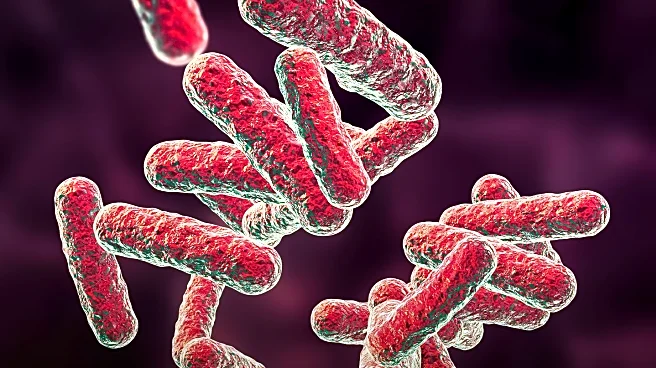What's Happening?
India is facing significant challenges in its pledge to eliminate tuberculosis (TB) by the end of 2025. Despite being home to 27% of the world's TB cases, the country struggles with healthcare system gaps and socioeconomic barriers that hinder progress. The disease is prevalent in densely populated and impoverished areas, where access to consistent medical care is limited. Efforts to combat TB include free testing and medication, but the healthcare infrastructure remains underfunded and outdated. The COVID-19 pandemic further exacerbated the situation by disrupting screenings and diverting resources.
Why It's Important?
India's battle with TB is a critical public health issue with global implications, given the country's large population and the potential for drug-resistant strains to spread. The failure to meet the 2025 target could undermine international health goals and highlight the need for more robust healthcare systems in developing nations. The situation underscores the importance of addressing social determinants of health, such as poverty and education, to effectively combat infectious diseases. Additionally, the use of AI-powered tools for early detection represents a promising yet underutilized strategy in resource-limited settings.
What's Next?
To improve outcomes, India may need to increase investment in healthcare infrastructure and expand the use of innovative technologies like AI-powered X-rays for early TB detection. Strengthening public health campaigns to reduce stigma and improve health-seeking behavior is also crucial. International support and collaboration could play a role in providing the necessary resources and expertise to help India achieve its TB elimination goals.










